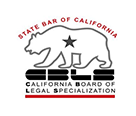Some employers in California may be affected by the fact that for fiscal year 2016, almost three times as many applications for H-B1 visas have been made than are available. This type of visa is intended for foreign workers who are skilled in science, engineering and computers, but the government caps it at 85,000. This includes 20,000 set aside for workers who have master’s degrees. For the coming year, 233,000 have applied.
The government then uses a lottery to decide who gets the visas. Tech companies have been critical of the process and the limits for years. They argue that economic growth is limited as a result, and one director of an industry lobby group has pointed out that in the coming year, employers have only a 36 percent chance of getting the visa for an employee. Another organization, a tech coalition called Compete America, says that the country misses out on 500,000 jobs annually.
President Obama made a number of changes to immigration law by executive order in 2014, but many other changes cannot be implemented without congressional support. He did ease the rules for entrepreneurs and for foreign students who want to remain in the country to work temporarily.
Individuals who are seeking visas to remain in the United States for work or other purposes may wish to consult an attorney. There may be a number of avenues available depending on factors such as whether an individual has family in the country or certain job skills. Furthermore, an individual facing deportation may qualify for a deferment. While significant immigration reform has yet to be enacted, a deferment may last for up to two years and may also provide a temporary renewable work permit. An attorney may be able to advise individuals on their eligibility.




